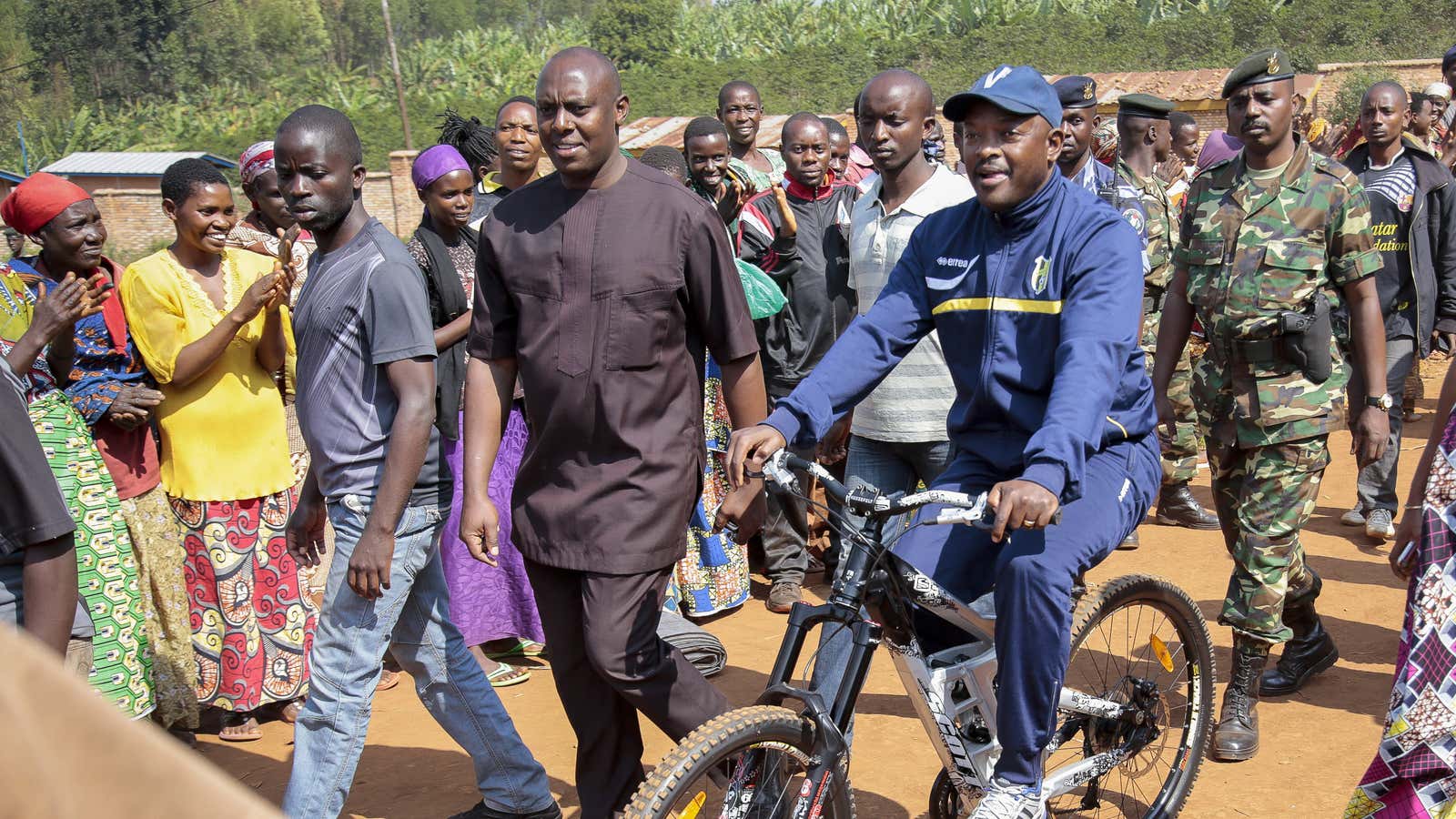Pierre Nkurunziza has secured a third-term as president of Burundi, winning 69% of the vote. Seventeen opposition parties boycotted the elections, leaving former general Agathon Rwasa, who took 19% of the votes, as Nkurunziza’s only rival at the polls.
Nkurunziza’s win comes after weeks of unrest, violence, and a failed coup—prompted by a move by Nkurunziza’s ruling party, the National Council for the Defense of Democracy (CNDD-FDD), to nominate him for a third term in April. Since then, about 1,000 people have been killed in the landlocked east African country, and more than 150,000 have fled to neighbouring countries to seek refuge.
Burundi’s constitution and the Arusha Peace and Reconciliation Accord, which ended a decade-long Burundian civil war, both prohibit presidents from pursuing a third term. Nkrunziza’s bid has been widely criticized by the African Union, European Union, and United Nations, who all called for elections to be postponed until stability was restored.
Al Jazeera reports that Nkurunziza’s opposition rival, Agathon Rwasa, has called for the formation of a government of national unity—one that would draw in several opposition parties to prevent a possible coup attempt . Presidential advisor William Nyamitwe said that while Nkurunziza would be open to a unity government, he was not prepared to reduce the period of his newly won five-year term.
Amnesty International has also released a report (pdf) titled “Braving Bullets – Excessive force in Policing Demonstrations” that details how excessive force was used by the police against opposition demonstrators in the weeks before and during the Burundi elections. Amnesty argues that the police treated peaceful demonstrators as part of an insurrection, punishing for them for their political views through force that was ultimately counterproductive, as it fueled further violence.
